Search Images
Browse Content (p. 718)
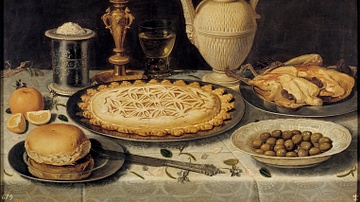
Image
Food Still-life by Clara Peeters
A still-life painting by Clara Peeters showing typical dishes of 16-17th century CE northern Europe. In the centre is a pie with a container behind it for salt and a typical low, round bread loaf in the foreground. The olives and orange would...
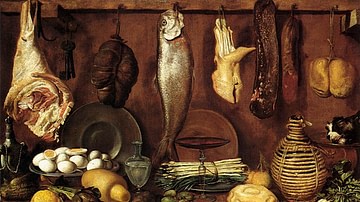
Image
16th Century CE Kitchen Still-life
A still-life of a 16th century CE kitchen by Jacopo Chimenti. (Private Collection)

Image
Elizabethan Trencher Plate
An Elizabethan trencher (wooden plate) with lid. c. 1600 CE. (British Museum, London)
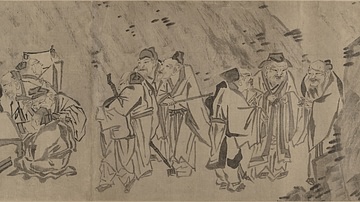
Image
Gathering of Philosophers
Qing Dynasty handscroll depicting Chinese philosophers by an unidentified artist, formerly attributed to Gong Kai.
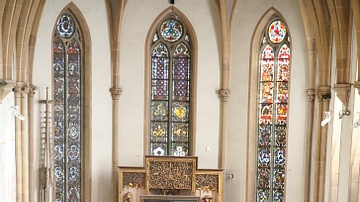
Image
Isenheim Altarpiece
The Isenheim Altarpiece is an altarpiece sculpted and painted by, respectively, the Germans Nikolaus of Haguenau and Matthias Grünewald in 1512–1516 CE. It is on display at the Unterlinden Museum at Colmar, Alsace, in France. It is Grünewald's...
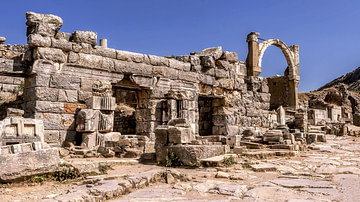
Image
The Fountain of Pollio, Ephesus
The Fountain of Pollio at Ephesus was built in 97 CE by C. S. Pollio, in memory of Sextillius Pollio, the builder of the famous aqueduct which carried water to all the fountains in the city. In the years following the initial construction...
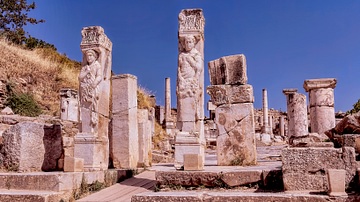
Image
Hercules Gate, Ephesus
The Hercules Gate at Ephesus gets its name from the reliefs of Hercules that adorn its columns. Hercules is considered the greatest of Greek heroes, and the epitome of masculinity. In the reliefs, Hercules is depicted wearing the skin of...
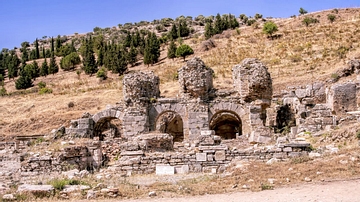
Image
The Square of Verulanus at Ephesus
The Square of Verulanus at Ephesus, was a spacious, arcaded courtyard for the training of athletes. It consisted of a number of buildings grouped around a central courtyard. The Great Baths or Harbor Baths, were built in the 2nd century CE...
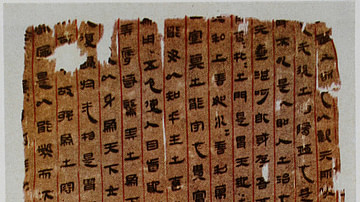
Image
Taoist Manuscript
Part of a Taoist manuscript, ink on silk, 2nd century BCE, Han Dynasty, unearthed from Mawangdui tomb 3, Chansha, Hunan Province, China.
Hunan Province Museum.
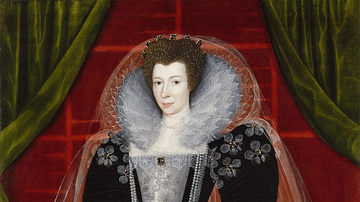
Image
Elizabethan Lady in Farthingale Dress.
A portrait of Elizabeth Howard, Lady Southwell (c.1564 – 1646), an English Elizabethan lady wearing a farthingale dress with its distinctive protruding waist created by a padded roll and inserted wooden hoops. By an unknown artist c. 1600...